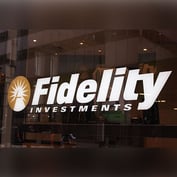What’s a bond firm doing in the stock market? Making a nice profit for investors, that’s what. By combining stock index futures with its bond market expertise, PIMCO’s Stocks Plus fund has nicely beaten the Standard & Poor’s 500 over the past three, five, and 10 years–and trailed it by a hair in 2003 (see table, page 68). Its newer Stocks Plus Total Return fund, meanwhile, was ahead of the S&P by 1.7 percentage points last year and another 1.6 points in the first quarter of 2004. Investment Advisor Editorial Director William Glasgall spoke with PIMCO Senior VP Sabrina Callin about the firm’s Stocks Plus and Stocks Plus Total Return funds.
Why are you investing in equities? Certainly PIMCO is not a firm that picks stocks; our expertise is bonds and related derivatives. But this allows us to provide an equity product that is quite competitive with other funds that are out there.
How does Stocks Plus work? We buy equity index futures, paying a small margin deposit. We invest the rest of the cash in a short-term fixed income portfolio similar to our short-term bond fund. This is going to provide you with a yield that’s equivalent to money market rates.








 May 01, 2004 at 04:00 AM
May 01, 2004 at 04:00 AM










